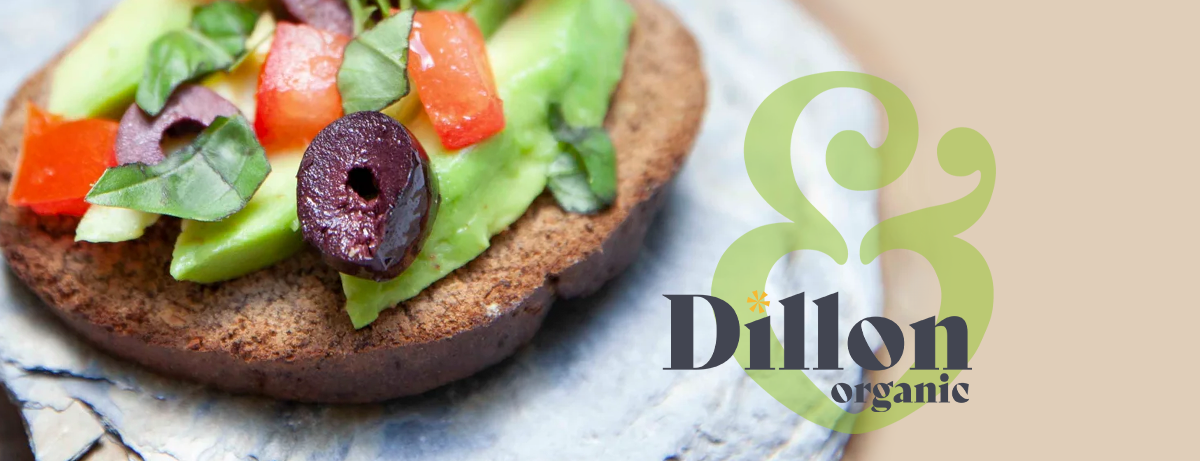15% off £30 OR 20% off £40
How to boost your energy on the keto diet

The ketogenic diet has gained popularity for its ability to promote weight management and support metabolic health. However, some individuals may experience a dip in energy levels when transitioning to a lower-carb, high-fat diet. In this article, we will explore effective strategies to support your energy on the keto diet. By implementing these tips, you can maintain your energy levels while reaping the benefits of ketosis.
1. Stay hydrated and replenish electrolytes
Proper hydration is crucial for maintaining energy levels, especially on a ketogenic diet. When following this eating plan, your body excretes more water and electrolytes due to reduced insulin levels. Lower-carbohydrate diets increase fluid losses through urine, making hydration even more important.1
To stay hydrated, aim to drink at least two litres of water per day. Additionally, replenishing electrolytes such as sodium, potassium, and magnesium are essential. These minerals can support nerve and muscle function, and energy metabolism. Electrolyte imbalances can contribute to fatigue and decreased exercise performance.2
Include electrolyte-rich foods in your diet, such as leafy greens, avocados, nuts, and seeds. You can also consider using electrolyte supplements or adding electrolyte powders to your water. Consuming electrolyte food and food supplements can help maintain hydration status and endurance during prolonged exercise and endurance performance.3
2. Ensure sufficient food intake
3. Exercise moderately
Exercise is an integral part of a healthy lifestyle, even on the keto diet. Engaging in physical activity can enhance your energy levels and support overall well-being. However, it's important to strike a balance to avoid exhaustion or sluggishness.
Lower-carbohydrate diets don’t impair exercise performance when consumed for a short duration.5 Find a workout routine that suits your fitness level and gradually increase intensity over time. Aim for a mix of cardiovascular exercises, strength training, and flexibility exercises. Pay attention to your body's signals and adjust your workout duration and intensity accordingly.
4. Increase healthy fat intake
The keto diet is characterised by its emphasis on high-fat foods. Consuming an adequate amount of healthy fats is vital for sustained energy on this eating plan. Fats provide a slow-burning fuel source that can keep you energised throughout the day.
High-fat diets can improve endurance performance in trained athletes.6 Including healthy fats in your meals can support energy metabolism and overall vitality.
Incorporate foods rich in healthy fats into your ketogenic diet. Avocados, olive oil, coconut oil, nuts, seeds, fatty fish, and grass-fed meats are excellent sources of healthy fats.
Avocados, for example, are rich in monounsaturated fats and also contain fibre, vitamins, and minerals.
Coconut oil is another valuable addition to a keto diet due to its medium-chain triglycerides (MCTs). MCTs are easily converted into ketones, providing a quick and efficient energy source for the body.7 MCTs can increase energy expenditure and fat oxidation compared to long-chain triglycerides.8
Including omega-3 fatty acids in your diet can also support energy levels. Fatty fish, such as salmon, mackerel, and sardines, are excellent sources of omega-3s. Omega-3 fatty acids have a positive impact on brain health, mood, and overall well-being.9
It's important to note that while increasing fat intake is beneficial on the keto diet, it's essential to prioritise healthy fats. Avoid unhealthy fats like trans fats found in processed foods, as they can impair energy metabolism.
Top tip: try replacing higher carb cereal in the morning with Dillon Organic keto bread toasted with poached dippy egg.
5. Prioritise quality rest and relaxation
Getting enough quality rest is essential for maintaining energy levels on any diet, including the ketogenic diet. Sleep deprivation can lead to fatigue, decreased cognitive function, and impaired physical performance.
Rest, relaxation and sleep has a significant impact on energy regulation and overall health.10 Prioritise a consistent sleep time schedule and aim for seven to nine hours of quality sleep time each night.
To improve sleep quality, establish a relaxing bedtime routine. Avoid stimulating activities, electronic devices, and caffeine before bed. Create a comfortable bedtime environment by keeping the room cool, dark, and quiet.
Practice relaxation techniques such as meditation or deep breathing to unwind before bed. Additionally, consider the timing of your meals in relation to bedtime. Consuming heavy meals close to bedtime can disrupt sleep. Allow a couple of hours between your last meal and bedtime.
The final say
The ketogenic diet can be a powerful tool for weight management and support metabolic health. By following these strategies, you can support your energy levels and maintain vitality on the keto diet. Stay hydrated, replenish electrolytes, ensure sufficient calorie intake, exercise moderately, increase healthy fat consumption, and prioritise quality rest and bedtime.
Remember, it's important to listen to your body and make adjustments as needed to find the right balance for your individual needs. With these tips, you can thrive on the keto diet while experiencing sustained energy and overall well-being.
Author Biography: Nick Bildner, Founder & Director of Dillon Organic
Dillon Organic is named after Nick’s son Dillon who regularly joins him in cooking for their family. Nick designed the Dillon Organic keto bread to help with his autoimmune skin condition as part of following a hybrid dieting model of switching between keto and low GL diets. The bread had the added benefit of keeping his children’s moods more stable too as they began to swap refined white bread for this new concept their dad was making.
As a co-founder of Pulsin Ltd, a company making plant-based nutrition bars and protein powders, Nick has 15 years’ experience in the natural foods industry.
- McClernon, F. J., Yancy, W. S., Eberstein, J. A., Atkins, R. C., & Westman, E. C. (2007). The effects of a low-carbohydrate ketogenic diet and a low-fat diet on mood, hunger, and other self-reported symptoms. Journal of the American College of Nutrition, 26(3), 243-248.
- Grgic, J., Mikulic, P., Schoenfeld, B. J., & Bishop, D. J. (2018). Dietary electrolyte intake and cardiovascular health. Nutrients, 10(11), 1-15.
- Knez, W. L., Peake, J. M., & Cripps, A. W. (2015). The influence of sodium phosphate supplementation on high-intensity intermittent exercise performance. International Journal of Sports Physiology and Performance, 10(6), 721-726.
- Gibson, A. A., Seimon, R. V., Lee, C. M., Ayre, J., Franklin, J., Markovic, T. P., . . . Sainsbury, A. (2015). Do ketogenic diets really suppress appetite? A systematic review and meta-analysis. Obesity Reviews, 16(1), 64-76.
- Phinney, S. D., Bistrian, B. R., Wolfe, R. R., & Blackburn, G. L. (1980). The human metabolic response to chronic ketosis without caloric restriction: preservation of submaximal exercise capability with reduced carbohydrate oxidation. Metabolism, 32(8), 769-776.
- Burke, L. M., Hawley, J. A., & Wong, S. H. S. (n.d.). Carbohydrates for training and competition. Journal of Sports Sciences, 29(sup1), S17-S27.
- Clegg, M. E. (2010). Medium-chain triglycerides are advantageous in promoting weight loss although not beneficial to exercise performance. International Journal of Food Sciences and Nutrition, 61(7), 653-679.
- St-Onge, M. P., Jones, P. J. H., & Ross, R. (2003). Enhancement of fat oxidation during exercise by dietary medium-chain triglycerides. European Journal of Clinical Nutrition, 57(4), 429-434.
- Bradbury, J., Myers, S. P., & Oliver, C. (2016). An adaptogenic role for omega-3 fatty acids in stress; a randomised placebo controlled double blind intervention study (pilot) [Abstract]. Nutrients, 8(5), 1-15.
- Alvarez, G. G., & Ayas, N. T. (2004). The impact of daily sleep duration on health: a review of the literature. Sleep Medicine Reviews, 9(14), 281-294.















